A diet high in fat, especially saturated fat and trans fat, can be potentially harmful to your health. It can increase your blood cholesterol levels and increase your risk of heart diseases. To lower your risk, replace most of the saturated- and trans-fats with unsaturated fats in your diet.
Types of Fat
| Food Sources
|
|---|
| Mono-unsaturated Fat | - Nuts
- Avocado
- Oil: canola, olive
- Margarine: canola, olive oil
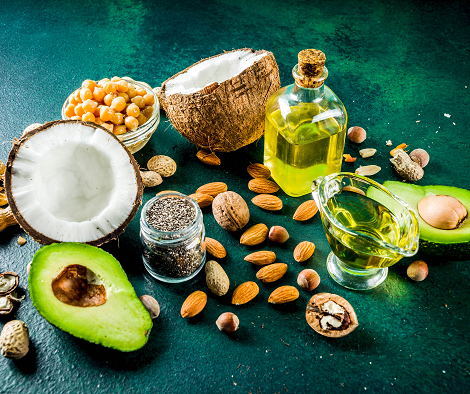
|
| Poly-unsaturated Fat | - Oily fishes: mackerel, salmon, sardines, patin
- Oil: sunflower, peanut, sesame, corn, soybean, rice bran
- Spreads with higher unsaturated fat content (e.g. soft margarine, peanut butter, avocado, hummus)
- Seeds: pumpkin, sesame and flaxseeds
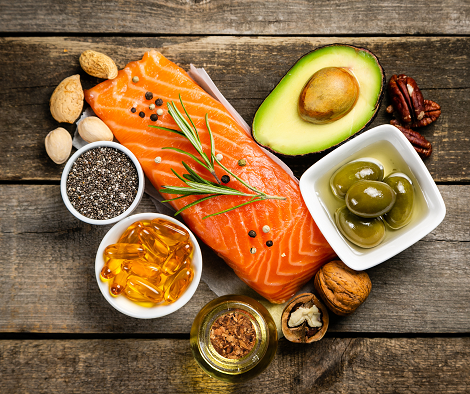
|
| Saturated Fat (tend to be solid at room temperature) | - Plant sources: coconut oil/ milk, palm oil
- Cream, 3-in-1 beverages, creamer, mayonnaise, cream-based salad dressings, heavy sauces or gravies
- Flavoured rice (e.g. nasi lemak, nasi briyani, chicken rice)
- Animal sources: visible fats, skin on meat, processed meat, organ meats, full cream dairy products (e.g. milk, yoghurt, cheese, cream), butter, lard, ghee
- Fast food, deep fried food
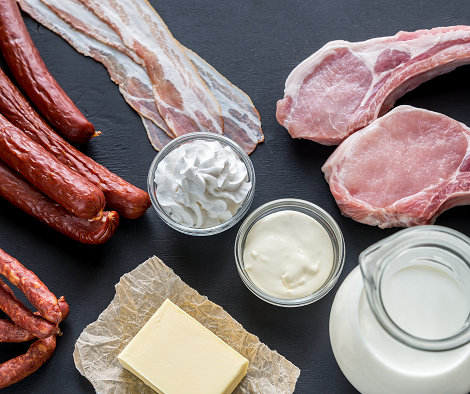
|
Trans Fat (also known as partially hydrogenated fat or vegetable shortening)
| - Hard margarine
- Confectioneries: sweets, chocolates
- Doughnuts, croissants, cookies, puffs, pies and pastries
- Potato chips
- Creamer
- Fast food, deep fried food
- Food prepared with multiple-reheated cooking oils
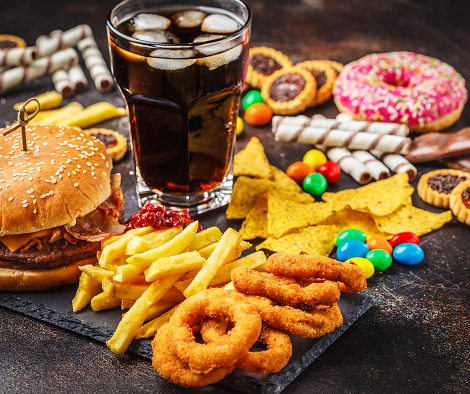
|
Here are some tips on how you can manage your diet, to lower your blood cholesterol level.
1. Read Food Labels
- Choose food with 3g or less fat per 100g (or 1.5g or less per 100ml). You can also compare similar products and choose the one with less fat per 100g (or per 100ml)
- Choose food products with the Healthier Choice Symbol ”Lower in Saturated Fat” and “Trans Fat Free”
- Look out for ingredient lists with hydrogenated fats or oils
2. Include foods that are high in plant sterols in your daily diet
- Plant sterols help to reduce your cholesterol levels. Examples include fortified food such as milk, orange juice and bread.
- The recommended amount of plant sterols is 2g a day. Aim for 2-3 servings of milk fortified with plant sterols to achieve a total of 2g a day.
3. Go easy on sweetened drinks and foods
- Eating too much sugar may raise triglyceride (a type of fat) levels and cause weight gain.
- Examples include : soft drinks, fruit juices, white/ brown sugar, syrup, honey, sweets and candies, desserts such as cakes, brownies etc.
4. Boost your fibre intake
- Eating more fibre can help to reduce your cholesterol level and reduce the risk of heart disease. Increase your intake of fruits, vegetables, oatmeal, whole grains and legumes.
- Aim to make at least half of your consumed grains wholegrains, and try to have two servings of fruits and vegetables each daily.
My Healthy Plate - vegetables serving sizes reproduced from https://www.healthhub.sg with permission by Health Promotion Board, Singapore
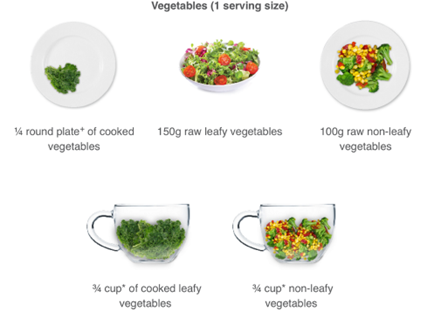
My Healthy Plate - fruit serving sizes reproduced from https://www.healthhub.sg with permission by Health Promotion Board, Singapore
5. Consume alcohol in moderation
- Drinking too much alcohol can increase triglyceride levels and lead to weight gain
- If you drink alcoholic beverages, do so in moderation
- Keep to 2 standard drinks for men and 1 standard drink for women per day
- A standard alcoholic drink is defined as a can (330 ml) of regular beer, half a glass (100 ml) of wine or 1 nip (30 ml) of spirit
